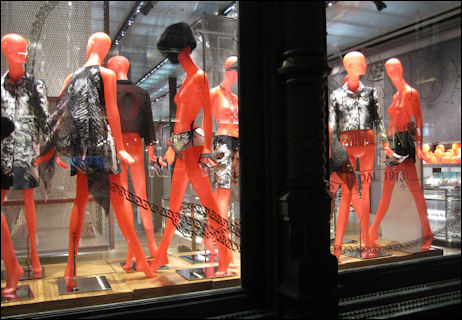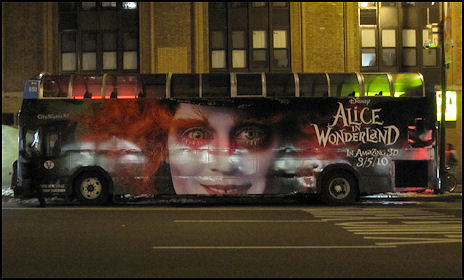Along with Avatar, Inglourious Basterds, Star Trek and Up, The Hurt Locker is nominated for a sound-editing Academy Award,” notes N.Y. Times staffer Virginia Heffernan. “For its cerebral, abstract and still deeply romantic sound tableau — a kind of sonic Cy Twombly painting — The Hurt Locker should win it.
“Sound editor Paul Ottosson‘s alignment of death and silence, instead of death and booms, partakes of an aesthetic based on the idea that you’re deaf when you die. On The Sopranos, a series known for its exquisite deployment of silence, Bobby Baccalieri says of dying, ‘You probably don’t hear it when it happens.’
“The Hurt Locker is not cool. It’s hot and dry, a heaving desert parable with a mounting sandstorm howl at the center. The internal explosions matter more than the fireworks.
“Explaining the dynamics of roadside bombs in Iraq, Ottosson told Variety, You die not from shrapnel but the expanding air that blows up your lungs.’
“The top notes in the Hurt Locker soundtrack are arid metallic clicks, snips, squeaks and creaks, the chatter of wrenches and wire clippers, as bombs are defused in air so parched as to seem combustible itself. Men can hardly summon the spit or breath to speak.
“Much of the dialogue — which was almost all recorded on location in Jordan (and not looped in a studio) — is delivered in headsets, as soldiers hiss into one another’s helmets across desert expanses. To listen is to enter machinery, rib cages, ear canals and troubled lungs.”





